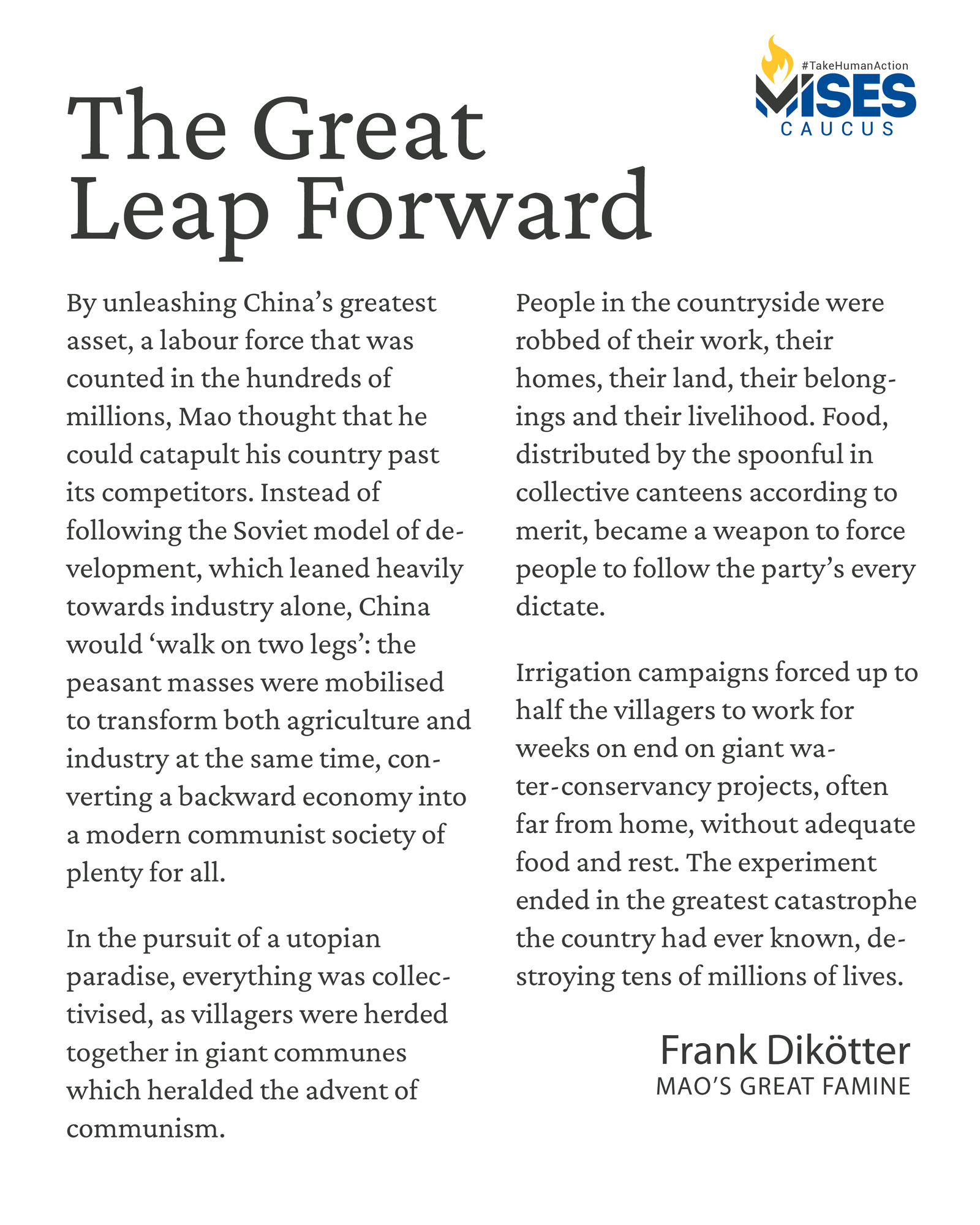By unleashing China’s greatest asset, a labour force that was counted in the hundreds of millions, Mao thought that he could catapult his country past its competitors. Instead of following the Soviet model of development, which leaned heavily towards industry alone, China would ‘walk on two legs’: the peasant masses were mobilised to transform both agriculture and industry at the same time, converting a backward economy into a modern communist society of plenty for all.
In the pursuit of a utopian paradise, everything was collectivised, as villagers were herded together in giant communes which heralded the advent of communism.
People in the countryside were robbed of their work, their homes, their land, their belongings and their livelihood. Food, distributed by the spoonful in collective canteens according to merit, became a weapon to force people to follow the party’s every dictate.
Irrigation campaigns forced up to half the villagers to work for weeks on end on giant water-conservancy projects, often far from home, without adequate food and rest. The experiment ended in the greatest catastrophe the country had ever known, destroying tens of millions of lives.
—Frank Dikötter, Mao’s Great Famine

